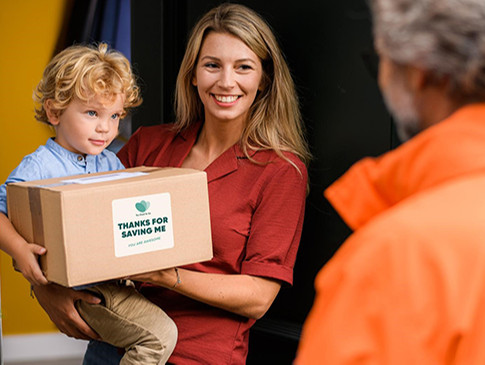
In a significant stride towards combating food waste, Too Good To Go, the world’s largest marketplace for surplus food, has made a notable impact in the Netherlands. Within less than a year, the company has successfully saved over 100,000 Magic Boxes. These boxes contain products from manufacturers that, for various reasons, cannot be sold to retailers. Instead of being discarded, these items are directly delivered to consumers, giving them a new lease on life. Following a pilot with Unilever, more than 50 manufacturers have joined this service, rescuing approximately 2.5 million products from waste.
The food manufacturing process, including production and packaging, accounts for about 18% of all food waste. To tackle this issue, Too Good To Go launched the ‘Magic Box’ model in November 2022. This initiative allows manufacturers to sell products that are unsuitable for retail, due to reasons like label misprints or a nearing Best Before date, directly to consumers. This approach not only extracts value from otherwise wasted products but also enhances product visibility and reduces the ecological footprint of manufacturers. To date, over 100,000 Magic Boxes have been saved from waste through the Too Good To Go app, equivalent to avoiding 1,450,000 kg of CO2e emissions. Geertje Zeegers, Country Director of Too Good To Go Netherlands, remarked on this milestone: “We are always looking for innovative ways to combat food waste. The Magic Box is not just a solution for manufacturers but also for consumers and the planet. It’s a triple win solution that is increasingly recognized by businesses. We encourage more manufacturers to join us and unite in the fight against food waste. Together, we can achieve more.”
Too Good To Go directly purchases products from manufacturers, which are then packaged into a Magic Box. These boxes are offered at a reduced price on the Too Good To Go app and delivered to the consumer’s doorstep by PostNL. Over 50 manufacturers have already participated in this model, including Kraft Heinz, Oatly, Coca-Cola, and John West. Belén Llamazares Carballo, Marketing Director Benelux at KraftHeinz, said: “Food waste is a key priority for Kraft Heinz. We focus on the entire value chain to identify areas where food waste can be reduced. Sometimes, products cannot be sold through regular channels. Collaborating with Too Good To Go enables us to give these products a valuable purpose while fulfilling our sustainability goals.”
Since its inception in 2016, Too Good To Go has enabled Dutch bakeries, supermarkets, and restaurants to offer their leftover food at a reduced price to consumers. With the well-known Surprise Box model, the platform has saved over 22 million meals. Around 4 million Dutch people have downloaded the app, and more than 10,000 partners are connected to the platform. These numbers are on the rise, influenced by factors like inflation and climate issues. Too Good To Go’s mission to create a world without food waste has inspired examining other parts of the food chain. In 2022, they introduced the ‘Look, smell, taste – before you waste’ logo, encouraging consumers to use their senses before discarding products nearing their Best Before date. An increasing number of manufacturers, including Unilever and Bertolli, are adopting this label on their packaging.
The Magic Box model from Too Good To Go exemplifies how innovative solutions and collaboration across different sectors can significantly reduce food waste. This initiative demonstrates that with creativity and collective efforts, a world without food waste is an achievable goal.
Source: Too Good Too Go